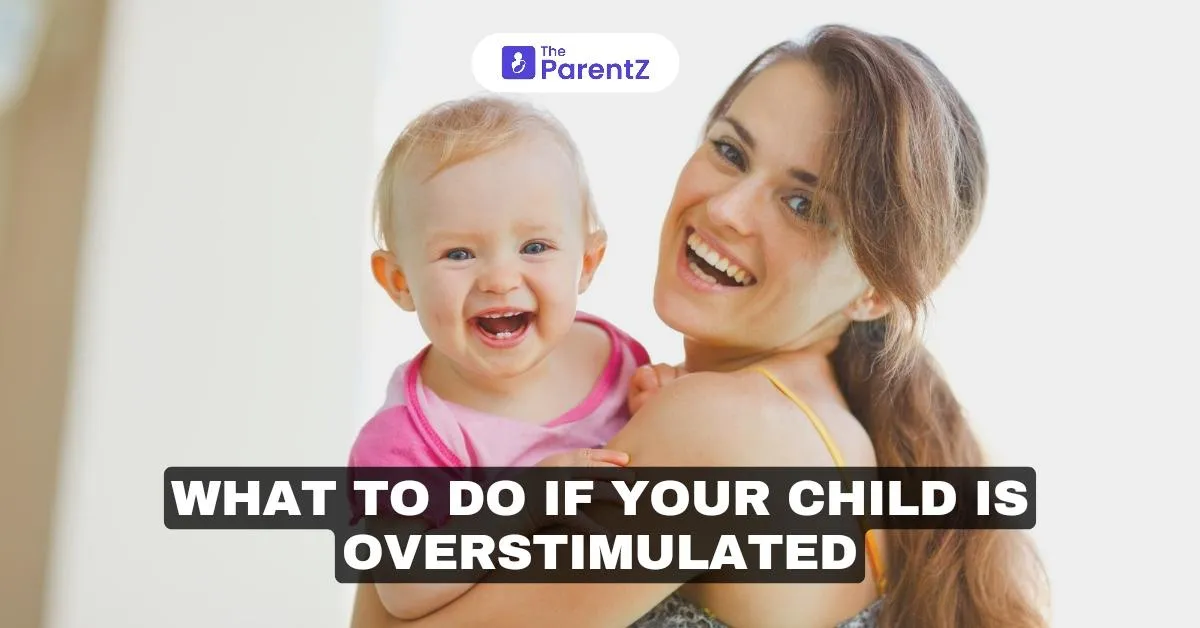Most parents have probably come across a situation when their little one suddenly starts crying, yelling, or clinging like a koala.
Chances are—they're overstimulated. In simple words, overstimulation in kids occurs when their senses are overwhelmed by too much noise, light, activity, or excitement. Even though it's a common experience for younger kids, it may seem overwhelming for both the parent and the child.
However, with some helpful tips, you can easily guide your kids on how to deal with an overwhelming environment with calm and patience.
Read below this article to find out what you can do if your child is overstimulated.
What is overstimulation?
Overstimulation is not synonymous with a bad mood. Instead, when kids experience too much input—sound, sight, and sensation—their meltdown begins. In fact, according to a study, sensory overstimulation is one of the most common stressors for young children. And nearly 40 percent of kids under age 6 experience it at least once a week.
So, what exactly are the signs that indicate your little one might be overstimulated? Below are the common signs of overstimulation in kids.
- Crying or whining for no possible reason
- Clinging
- Covering their ears or eyes
- Hyperactivity
- Withdrawals
- Increased irritability or aggression
If you notice these signs, your child is probably trying to indicate he needs a break.
What to Do When Overstimulation Occurs?
Here are a few helpful things that can aid you in dealing with overstimulation in kids.
A Gentle Physical Contact
Sometimes, when your child is overstimulated, the best thing you can give is a reassuring touch—a hug, holding their hand, or rubbing their back can make them feel much lighter. This is because touch stimulates the release of oxytocin, a hormone that reduces stress and promotes relaxation.
A natural reset button, in short!
The only thing to remember is that not every child may feel comfortable during meltdowns; therefore, knowing their preferences is essential.
A Soothing Space
The truth is, when the world seems too big, a small and comforting space is what can actually make a big difference. When your child feels overstimulated, all they need is a peaceful and lit corner to retreat.
In fact, even studies have proven that reducing sensory input—like lowering noise levels or dimming lights—actually helps kids in regulating their emotions faster.
Limiting Sensory Overload
Prevention is an essential aspect when it comes to avoiding overstimulation, especially if you know your child may feel overwhelmed by a noisy birthday party or busy shopping mall.
This way, by reducing the possibilities of overstimulation, you can keep your little one from reaching his breaking point in the first place.
Deep Breathing Is What They Need
Breathtaking exercises are great when it comes to calming down. The best part is that even young kids can learn simple breathing exercises.
Did you know that deep breathing exercises actually work by slowing the heart rate and activating the body’s relaxation response, thereby helping children shift from chaos to calm? And almost 30 percent of kids experienced reduced stress due to deep breathing exercises, as per a survey.
Takeaway
The truth is, overstimulation is a normal part of childhood. However, by creating a calm environment, limiting sensory exposure, and using gentle reassuring touch to comfort your overstimulated child, you can actually do wonders. After all, every time you are teaching your child to handle overstimulation, you are actually preparing them for even greater challenges in the long run.








Be the first one to comment on this story.